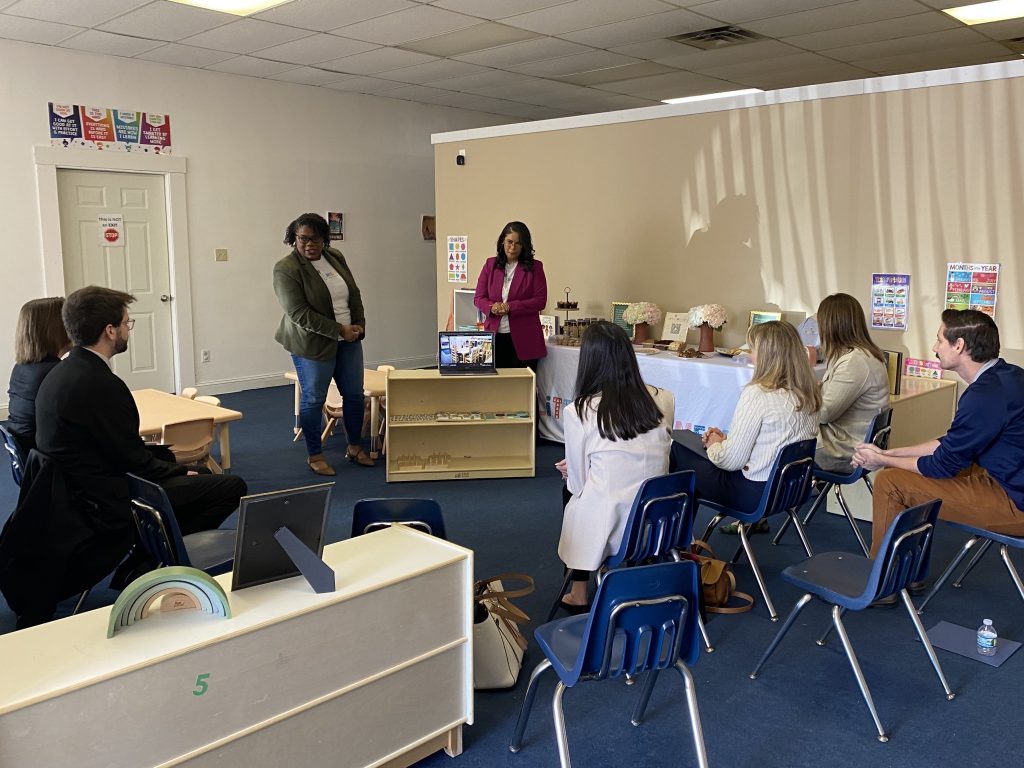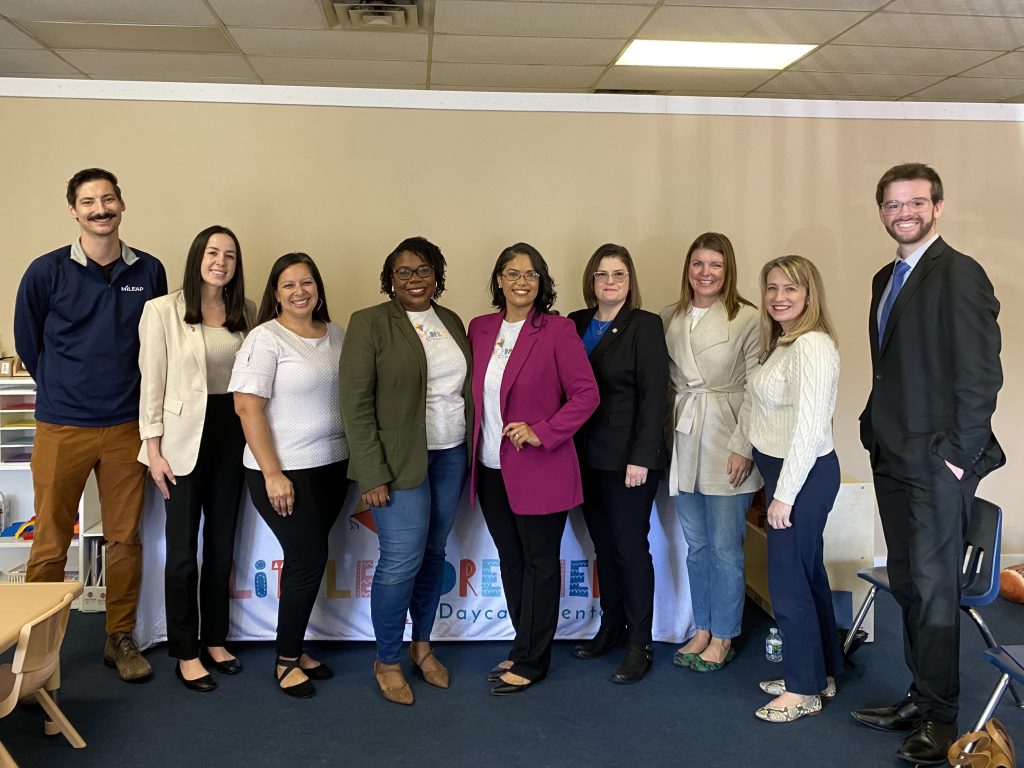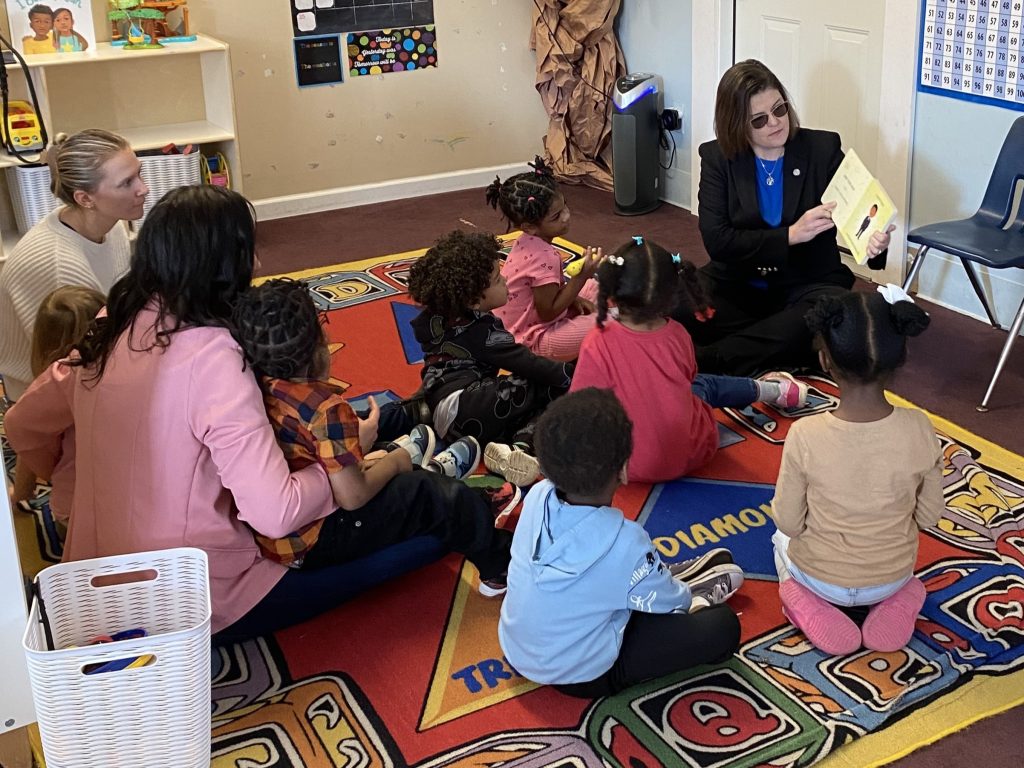


On October 18, ECIC CEO Alicia Guevara Warren joined Michigan State Representative Kara Hope (D-Holt), Emily Laidlaw, Deputy Director of Early Education at the Michigan Department of Lifelong Education, Advancement, and Potential (MiLEAP), Emma Young, Early Childhood Policy Analyst for the Executive Office of the Governor, and Julie Thomasma, CEO of Child and Family Charities, to visit Little Dreamers Day Care in Lansing. ECIC strives to facilitate conversation between ECE professionals, partners, and lawmakers working to solve Michigan’s child care crisis, so that all Michigan children can access quality early care and learning.
Little Dreamers Day Care is a Black-owned business, established in 2015 as a home child care program that has since grown to become a licensed child care center. Center Owner Jacqueline Taylor and Center Director Maria Robertson welcomed early childhood advocacy partners to discuss the ongoing child care crisis in Michigan, child care business owners’ lack of access to capital, and how small businesses like Little Dreamers could benefit from increased state investment in child care.
According to Robertson, a major obstacle for small businesses like Little Dreamers is lack of access to capital that would allow them to improve and expand their facilities. Little Dreamers has recently expanded , working to renovate the space to comply with licensing requirements and provide a safe space for the children they serve. This expansion was a financial risk due to the slim profit margins that Little Dreamers and many other child care businesses operate on. As Little Dreamers worked through various steps, including required municipal inspections from the fire department, they were unable to open the space and enroll additional children , making Little Dreamers unable to offset the cost of the expanded space to serve more children and families in their community. This is not unusual.
Child care programs like Little Dreamers Day Care want to pay staff more and provide additional benefits to employees. However, they can’t raise prices for families that are already struggling to afford care. Profit margins in the child care industry are typically under 1%, and these slim operating margins contribute to capacity issues like high staff turnover. Child care providers are finding some relief in the raised CDC Scholarship reimbursement rates this year, though they still don’t reach the level of pay that was standard during Fiscal Year 2023, before federal American Rescue Plan Act (ARPA) funding expired.
ECIC continues to work with legislators, partners, and advocates to meet the True Cost of Care in Michigan. Fiscal analysis conducted in 2023 by Hope Starts Here Detroit, Think Babies Michigan, MiLEAP, and Prenatal to Five Fiscal Strategies, found that an additional investment of $3.5 billion would fully fund Michigan’s child care and home visiting services.
According to early childhood advocates, one possible solution is to supplement federal investments with state funding. “The child care industry runs because of small business owners, especially women, and Michigan needs to invest state dollars into these businesses like they do with other small businesses,” said ECIC CEO Alicia Guevara Warren. “The level of passion and commitment from Michigan’s child care providers is incredible. It’s inspiring to see what ECE professionals do, and it’s heartbreaking to hear the struggles they encounter. Investing state dollars into the child care industry is necessary to solve this crisis.”
